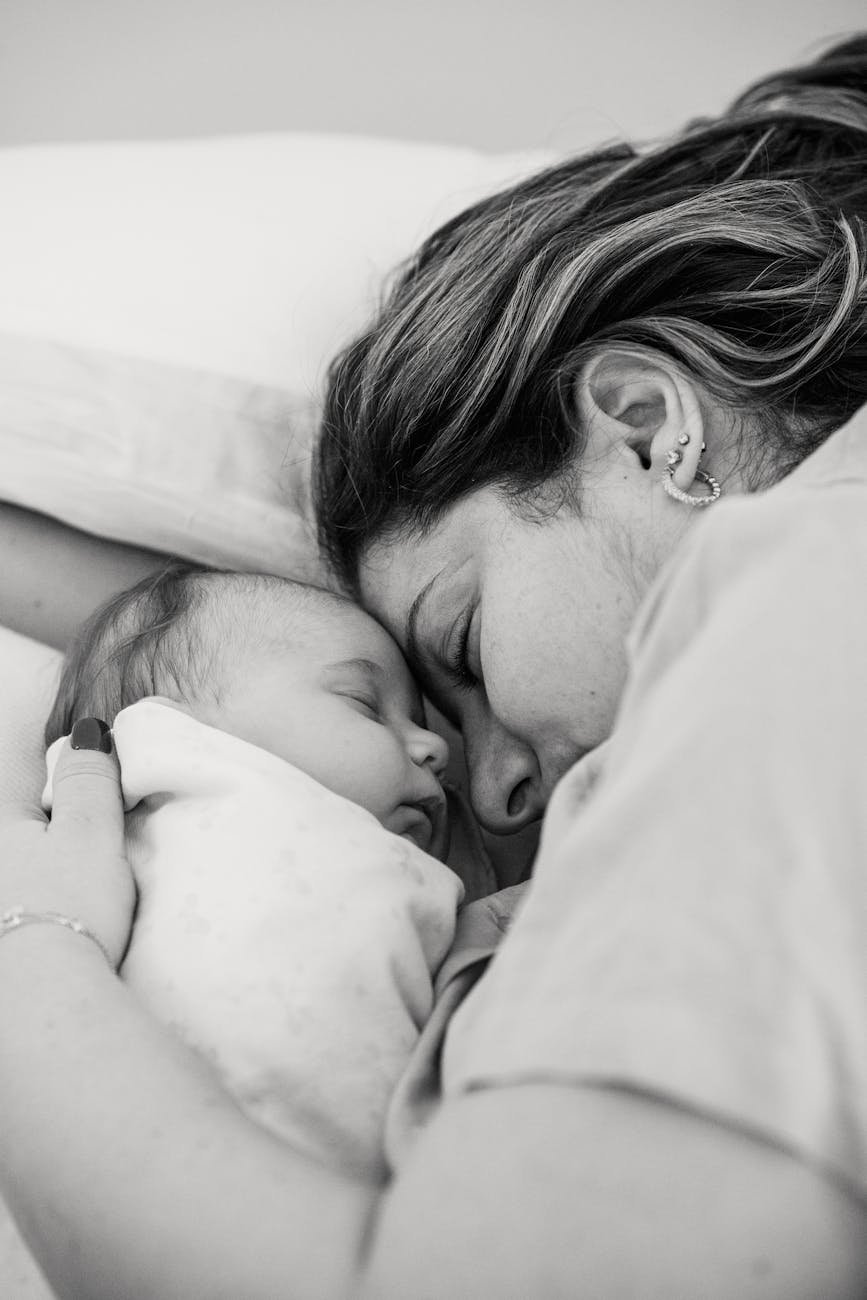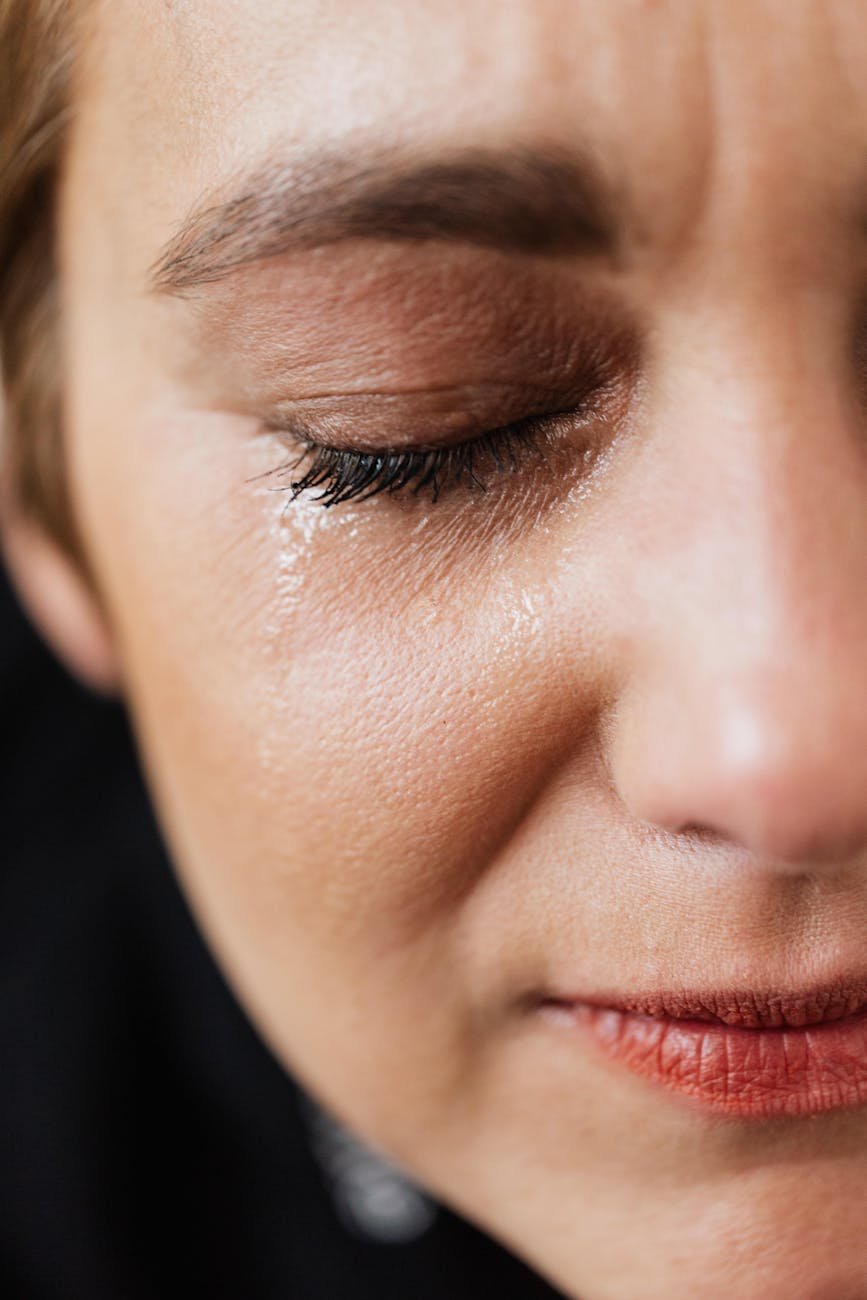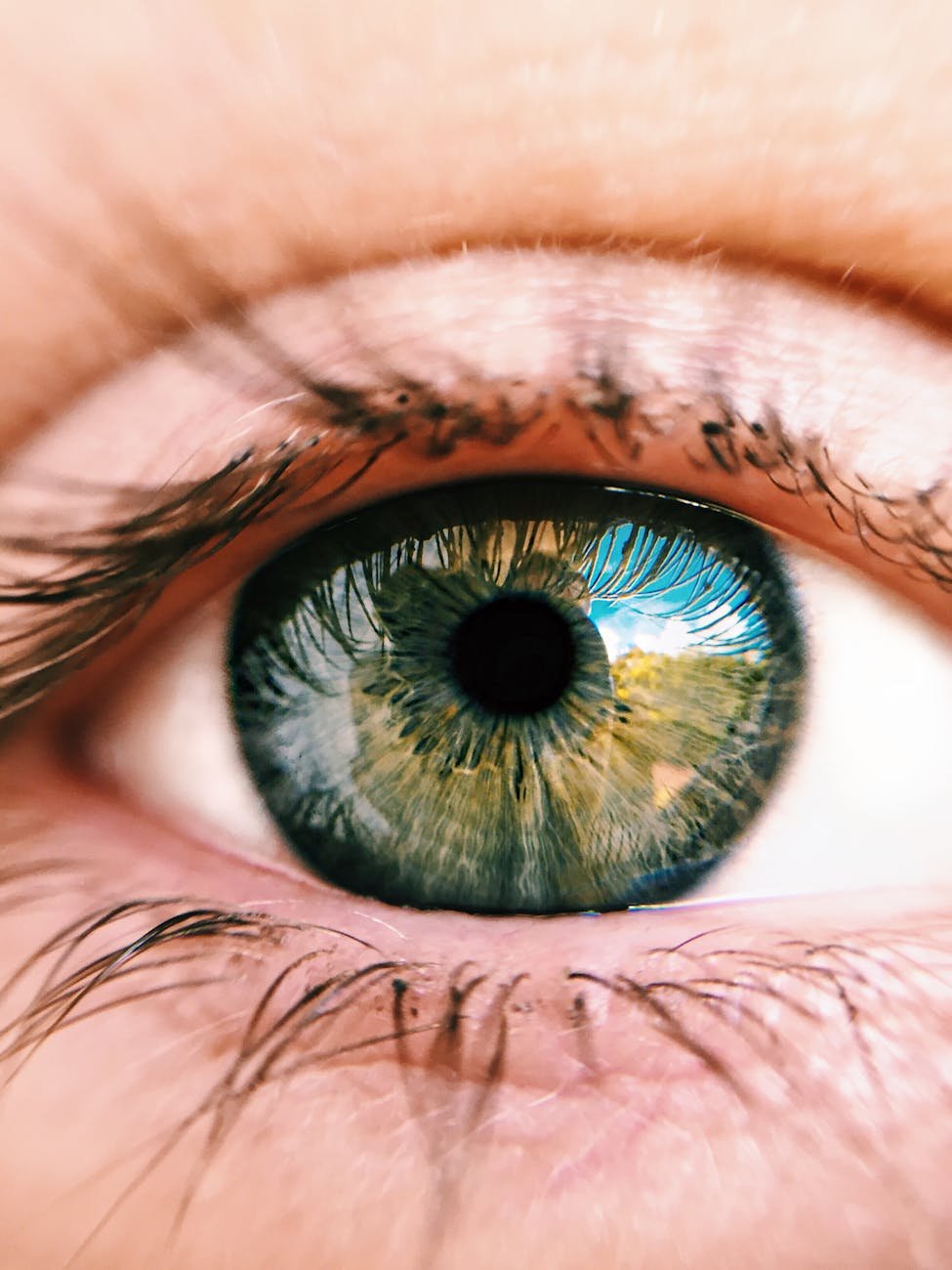The Connection Between Sleep and Eye Health: Why Good Sleep is Vital for Maintaining Healthy Eyes
You probably know that sleep is crucial for feeling refreshed and alert, but did you know it’s also essential for eye health? Yes, those eight hours of rest are more than just a beauty sleep—they’re a vital part of keeping your eyes healthy and functioning properly. Let’s dive into why catching those Z’s is so important for your vision and overall eye health.
How Sleep Impacts Eye Health
Imagine your eyes as a delicate machine that needs regular maintenance. Just like any machine, they need downtime to repair and rejuvenate. During sleep, your body works hard to restore various systems, and your eyes are no exception. When you don’t get enough sleep, this crucial repair time is cut short, leading to various eye issues.
Lack of sleep can cause your eyes to become dry, itchy, and irritated. You might also notice redness or puffiness, which are signs that your eyes aren’t getting the rest they need. Quality sleep helps your eyes recover from daily stressors and environmental factors. So, the next time you’re tempted to skimp on sleep, remember that your eyes need it just as much as the rest of your body.
Sleep and Eye Repair: A Vital Link
While you’re snoozing, your body goes into repair mode, and your eyes benefit greatly from this process. During deep sleep, your eyes replenish moisture and remove waste products that have accumulated throughout the day. This helps to maintain healthy, clear vision and prevent issues like dry eye syndrome.
Good sleep also supports the production of essential eye fluids that keep your eyes lubricated and comfortable. When you don’t get enough rest, these fluids aren’t produced in adequate amounts, which can lead to discomfort and vision problems. Prioritizing sleep ensures that your eyes receive the care they need to stay healthy and function optimally.
The Role of Sleep in Preventing Eye Diseases
Getting enough quality sleep is not only crucial for everyday comfort but also plays a significant role in preventing eye diseases. Chronic sleep deprivation can increase your risk of developing conditions like glaucoma, macular degeneration, and diabetic retinopathy.
Glaucoma, for example, is linked to increased eye pressure, which can be exacerbated by insufficient sleep. Adequate rest helps regulate eye pressure and reduces the risk of this serious condition. Similarly, poor sleep patterns have been associated with a higher risk of developing macular degeneration, a leading cause of vision loss in older adults. Ensuring you get enough sleep is a simple yet effective way to support your long-term eye health.
Tips for Better Sleep and Healthier Eyes
If you want to improve your eye health through better sleep, there are several strategies you can try. First, aim for 7-9 hours of quality sleep each night. Establishing a regular sleep schedule can help regulate your body’s internal clock and improve sleep quality.
Create a relaxing bedtime routine to signal to your body that it’s time to wind down. This might include activities like reading a book, taking a warm bath, or practicing relaxation techniques. Avoid screens and bright lights before bed, as the blue light from devices can interfere with your sleep cycle.
Additionally, make your sleep environment as comfortable as possible. Keep your bedroom cool, dark, and quiet to promote restful sleep. Investing in a good-quality mattress and pillows can also enhance your sleep experience, contributing to better eye health.
The Importance of Hydration for Eye Health
Hydration plays a crucial role in maintaining healthy eyes, and it’s closely linked to your sleep patterns. When you’re well-hydrated, your body can produce adequate tear film to keep your eyes moist and comfortable. Dehydration can lead to dry, irritated eyes, especially if you’re not getting enough sleep.
Make sure to drink plenty of water throughout the day, and limit caffeine and alcohol, which can dehydrate you. Staying hydrated supports overall health, including eye health, and helps ensure that your eyes stay well-lubricated and free from discomfort.
Recognizing Signs of Sleep-Related Eye Issues
It’s important to pay attention to any signs that your eyes might not be getting the rest they need. Common symptoms of sleep-related eye issues include redness, puffiness, dryness, and blurred vision. If you notice these symptoms regularly, it may be a sign that you need to prioritize better sleep habits.
In some cases, persistent eye issues despite adequate sleep might indicate other underlying health problems. If you’re experiencing ongoing discomfort or vision changes, it’s a good idea to consult with an eye care professional for a thorough evaluation.
Signs of Sleep Deprivation on Your Eyes: How Lack of Sleep Manifests in Eye Appearance and Function

Ever looked in the mirror after a restless night and thought, “Wow, my eyes look awful”? You’re not alone. Sleep deprivation doesn’t just leave you feeling groggy; it also has noticeable effects on your eyes. From dark circles to dryness, lack of sleep can seriously impact how your eyes look and feel. Let’s explore the common signs of sleep deprivation that show up in your eyes and what they mean for your overall health.
Dark Circles: A Tell-Tale Sign of Sleep Deprivation
Dark circles under the eyes are often one of the first signs of sleep deprivation. These dark rings can make you look tired and aged, even if you feel fine otherwise. When you don’t get enough sleep, your body produces more cortisol, which can lead to increased blood flow in the area under your eyes. This can cause the skin to appear darker and more prominent.
Lack of sleep can also lead to fluid retention, which makes the skin under your eyes puffier. The combination of darker skin and puffiness gives rise to those unwanted dark circles. To combat this, ensure you’re getting 7-9 hours of quality sleep each night and stay hydrated to help reduce the appearance of dark circles.
Puffy Eyes: Swelling and Irritation
Ever woken up with puffy eyes that make you resemble a cartoon character? Puffy eyes are a common symptom of sleep deprivation. When you’re not getting enough rest, your body can retain excess fluid, which often accumulates around the eyes. This fluid retention leads to noticeable swelling and puffiness, making you look like you’ve been up all night.
Inadequate sleep also disrupts your body’s natural processes for fluid balance and drainage. As a result, your eyes can appear bloated and uncomfortable. To reduce puffiness, try elevating your head while you sleep and applying cool compresses to your eyes in the morning.
Red Eyes: Irritation and Discomfort
Red, bloodshot eyes are another tell-tale sign of not getting enough sleep. When you’re sleep-deprived, your eyes become more prone to dryness and irritation. This dryness can lead to redness and a burning sensation, making it clear that your eyes aren’t getting the rest they need.
Sleep deprivation affects the production of tears, which are crucial for keeping your eyes lubricated and comfortable. Without adequate lubrication, your eyes can become dry, leading to redness and discomfort. To soothe red eyes, use lubricating eye drops and ensure you’re getting enough sleep each night to support tear production.
Blurred Vision: Difficulty Focusing
If you’ve ever noticed that your vision seems a bit blurry after a sleepless night, you’re not imagining things. Sleep deprivation can impact your eye function, making it harder to focus clearly. When you’re tired, your eyes have to work harder to maintain focus, leading to temporary blurred vision and difficulty with tasks that require sharp eyesight.
Lack of sleep can also cause temporary changes in the shape of your cornea, the clear front part of your eye. This can affect how light enters your eye and how well you can see. Ensuring you get sufficient rest can help maintain clear vision and overall eye health.
Dry Eyes: The Unpleasant Side Effect of Fatigue
Dry eyes are a common issue when you’re sleep-deprived. Without adequate rest, your eyes don’t produce enough tears to keep them moist and comfortable. This dryness can lead to irritation, a gritty feeling, and even blurred vision.
Dry eyes from sleep deprivation can be quite uncomfortable, making it hard to concentrate on tasks and enjoy daily activities. To alleviate dry eyes, use lubricating eye drops and ensure you’re following a consistent sleep schedule to support tear production and eye comfort.
Sensitivity to Light: A Sign of Overworked Eyes
If you find yourself squinting or feeling sensitive to light after a few sleepless nights, your eyes might be overworked. Sleep deprivation can make your eyes more sensitive to light, a condition known as photophobia. This sensitivity occurs because your eyes are tired and strained from lack of rest.
To help manage light sensitivity, reduce exposure to bright lights and use sunglasses when you’re outside. Ensuring you get enough sleep will help your eyes recover from the strain and reduce sensitivity over time.
Eye Fatigue: Feeling Weary and Overworked
Eye fatigue is a common symptom of sleep deprivation. When you don’t get enough rest, your eyes work harder to maintain focus, leading to tired, strained eyes. This fatigue can cause discomfort and affect your ability to perform tasks effectively.
To combat eye fatigue, take regular breaks from screen time and practice the 20-20-20 rule: every 20 minutes, look at something 20 feet away for at least 20 seconds. Additionally, getting plenty of sleep each night will help your eyes recover from fatigue and feel more refreshed.
Improving Sleep for Better Vision: Tips for Enhancing Sleep Quality to Support Eye Health

Ever noticed how your eyes feel better when you get a good night’s sleep? There’s a strong link between quality sleep and eye health. Getting the right amount of rest isn’t just good for your overall well-being; it’s also crucial for maintaining clear, healthy vision. So, if you’re looking to boost both your sleep quality and your eye health, here are some simple tips to help you get those much-needed Z’s.
Create a Consistent Sleep Schedule
One of the best ways to improve your sleep is by establishing a regular sleep schedule. Going to bed and waking up at the same time each day helps regulate your internal clock, making it easier to fall asleep and wake up naturally. Consistency is key for a restful night’s sleep, which in turn supports your eye health.
Set a bedtime routine that signals to your body it’s time to wind down. This could include activities like reading, taking a warm bath, or practicing relaxation techniques. By sticking to a consistent sleep schedule and bedtime routine, you’re helping your body—and your eyes—get the restorative sleep they need.
Optimize Your Sleep Environment
Creating a sleep-friendly environment can make a huge difference in the quality of your rest. Start by ensuring your bedroom is cool, dark, and quiet. A comfortable mattress and supportive pillows are also essential for a good night’s sleep. The goal is to create a space where you can relax and drift off easily.
Consider using blackout curtains to block out any external light that might interfere with your sleep. White noise machines or earplugs can help drown out disruptive sounds. The more comfortable and conducive to sleep your environment is, the better your sleep quality will be, leading to healthier, more refreshed eyes.
Limit Screen Time Before Bed
In today’s digital age, it’s easy to get caught up in screens before bed. However, the blue light emitted by phones, tablets, and computers can interfere with your body’s natural sleep-wake cycle. This light can suppress the production of melatonin, the hormone that regulates sleep.
To improve your sleep quality and protect your eye health, try to limit screen time at least an hour before bed. Instead, engage in relaxing activities that don’t involve screens. Reading a physical book, practicing meditation, or listening to calming music can help you wind down and prepare your body for restful sleep.
Practice Relaxation Techniques
Stress and anxiety can seriously impact your ability to fall and stay asleep. Incorporating relaxation techniques into your nightly routine can help calm your mind and promote better sleep. Techniques like deep breathing exercises, progressive muscle relaxation, and mindfulness meditation can be incredibly effective.
Find a relaxation method that works best for you and make it part of your evening routine. Whether it’s a few minutes of deep breathing or a guided meditation, these practices can help reduce stress and create a more peaceful state of mind, leading to improved sleep and eye health.
Be Mindful of Your Diet and Caffeine Intake
What you eat and drink can also affect your sleep quality. Consuming large meals or heavy, spicy foods right before bed can disrupt your sleep. Additionally, caffeine and alcohol can interfere with your ability to fall asleep and stay asleep throughout the night.
To promote better sleep and support your eye health, try to avoid caffeine and alcohol in the hours leading up to bedtime. Opt for a light snack if you’re hungry before bed, and choose foods that are known to promote sleep, such as bananas, almonds, or warm milk. A balanced diet contributes to overall well-being, including the health of your eyes.
Stay Hydrated, but Not Too Late
Staying hydrated is essential for maintaining healthy eyes and overall well-being. However, drinking too much fluid close to bedtime can lead to frequent trips to the bathroom during the night, disrupting your sleep. Aim to stay hydrated throughout the day, but try to limit fluid intake in the hour or so before bed.
A well-hydrated body supports tear production and helps keep your eyes moist and comfortable. Just be mindful of not overdoing it right before bedtime to avoid sleep interruptions. By balancing hydration with a good sleep routine, you’ll be supporting both your sleep quality and your eye health.
Exercise Regularly, but Not Right Before Bed
Regular physical activity can significantly improve your sleep quality and overall health. Exercise helps regulate your sleep-wake cycle and reduces stress, leading to better rest. However, intense exercise right before bed can be counterproductive, as it can increase adrenaline and make it harder to fall asleep.
Try to schedule your workouts earlier in the day to give your body time to wind down before bedtime. Incorporating activities like walking, swimming, or yoga into your daily routine can help promote better sleep and support overall eye health. The key is to find a balance that works for you and enhances both your sleep quality and physical well-being.
Monitor Your Sleep Patterns
Keeping track of your sleep patterns can provide valuable insights into how well you’re sleeping and where improvements can be made. Consider using a sleep tracker or app to monitor your sleep duration, quality, and any disruptions. This information can help you identify patterns and make adjustments to improve your sleep.
By understanding your sleep patterns, you can make more informed decisions about how to enhance your rest and support your eye health. Adjusting your routine based on this data can lead to better sleep quality and, ultimately, healthier, more vibrant eyes.
The Role of REM Sleep in Eye Health: Exploring How Different Sleep Stages Affect Your Eyes

You’ve probably heard about REM sleep—the stage where dreams come alive and your brain gets a workout. But did you know that REM sleep plays a crucial role in your eye health? It’s not just about vivid dreams and brain activity; REM sleep has significant effects on how your eyes feel and function. Let’s dive into how different sleep stages, especially REM, impact your eye health and why they’re so important.
What is REM Sleep and Why Does it Matter?
REM stands for Rapid Eye Movement, and it’s the stage of sleep where your eyes dart around quickly under your closed eyelids. This stage typically occurs about 90 minutes into your sleep cycle and recurs several times throughout the night. During REM sleep, your brain is highly active, processing memories and emotions. But did you know your eyes are just as busy?
During REM sleep, your eyes receive essential rest and rejuvenation. This stage allows your eyes to recover from daily strain and exposure to environmental factors. Since your eyes are closed and your body is in a state of deep relaxation, this is a prime time for them to heal and refresh. It’s like giving your eyes a mini-vacation every night.
How REM Sleep Affects Tear Production and Eye Health
One of the key benefits of REM sleep is its impact on tear production. During this sleep stage, your eyes produce tears that help lubricate and cleanse the surface of your eyes. This tear production is vital for preventing dryness and irritation that can occur from prolonged screen time or environmental exposure.
When you’re deprived of REM sleep, your tear production may decrease, leading to dry, uncomfortable eyes. This can cause a range of issues, from mild irritation to more serious conditions like dry eye syndrome. Ensuring you get enough REM sleep helps maintain adequate tear production, keeping your eyes moist and comfortable.
REM Sleep and Eye Muscle Relaxation
Your eye muscles work hard throughout the day to keep your eyes focused and aligned. During REM sleep, these muscles get a chance to relax and recover. This relaxation is essential for preventing eye strain and maintaining overall eye health.
When you don’t get enough REM sleep, your eye muscles may remain tense, leading to discomfort and strain. Regular REM sleep helps your eye muscles relax fully, reducing the risk of eye strain and improving your overall visual comfort. It’s like a gentle workout for your eyes while you rest.
The Connection Between REM Sleep and Visual Memory
Your eyes don’t just need rest—they also need to process and store visual information. REM sleep plays a critical role in this process. During this stage, your brain consolidates visual memories and processes what you’ve seen throughout the day.
If you’re skimping on REM sleep, you might notice difficulties in recalling visual details or processing new information. This can impact your ability to perform tasks that require visual memory, such as reading or driving. Getting enough REM sleep helps your brain and eyes work together seamlessly, enhancing your visual memory and cognitive function.
The Impact of Sleep Deprivation on REM Sleep
If you’ve ever pulled an all-nighter or had a rough night’s sleep, you might have noticed that your eyes feel particularly tired or strained. That’s because sleep deprivation directly affects REM sleep. When you’re not getting enough sleep, your body struggles to enter or maintain REM sleep stages.
The result? You miss out on the vital eye recovery and tear production benefits that REM sleep provides. Sleep deprivation can lead to more noticeable eye issues like dryness, irritation, and blurry vision. Ensuring you get enough quality sleep helps you achieve the necessary REM stages, keeping your eyes feeling fresh and healthy.
Tips for Enhancing REM Sleep for Better Eye Health
To make sure you’re getting the REM sleep your eyes need, focus on creating a sleep-friendly environment. Stick to a consistent sleep schedule and create a relaxing bedtime routine. Avoid caffeine and screens before bed to help your body wind down naturally.
Creating a cool, dark, and quiet sleep environment can also support REM sleep. Consider using blackout curtains and white noise machines if necessary. These simple adjustments can enhance your overall sleep quality and ensure you’re getting the restorative REM sleep that’s so crucial for eye health.
Recognizing Signs of REM Sleep Deficiency
If you’re not getting enough REM sleep, you might notice several signs. Common symptoms include eye discomfort, dry eyes, and difficulty focusing. You might also experience issues with visual memory or increased eye strain.
Pay attention to these signs and make adjustments to your sleep habits as needed. If you’re consistently having trouble achieving quality sleep, it might be worth discussing with a healthcare professional. They can help identify any underlying issues and provide guidance on improving your sleep quality for better eye health.
